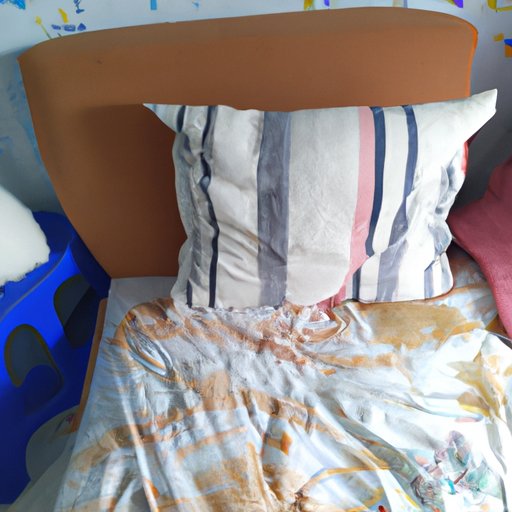Introduction
Getting enough quality sleep is essential for good health and wellbeing. When we don’t get enough sleep or don’t sleep well at night, it can have a negative impact on our physical and mental health. So, how do you make sure you’re sleeping well? In this article, we will explore some tips and strategies that can help you sleep better at night.
Establish a Regular Sleep Schedule
One of the most important things you can do to ensure that you are getting enough quality sleep is to establish a regular sleep schedule. This means setting specific times that you go to bed and wake up each day, even on weekends. This helps to regulate your body’s internal clock so that you feel sleepy at the same time each night, making it easier to fall asleep quickly and stay asleep throughout the night.
It is also important to stick to a consistent routine before bedtime. This could include taking a warm bath or shower, reading a book, or listening to calming music. This helps to signal to your body that it’s time to relax and prepare for sleep.
Exercise During the Day
Exercising during the day can also help you sleep better at night. Exercise can reduce stress, which can interfere with sleep. It can also help you feel more energized during the day, which can lead to feeling more tired at night. Aim for 30 minutes of moderate exercise each day, such as walking, jogging, swimming, or biking.
If you find it difficult to fit in a full workout each day, there are other types of exercises that can help you sleep better. Yoga and stretching can be particularly helpful, as they help to relax the body and mind. Taking a short walk in the evening can also help to wind down and prepare for sleep.
Reduce Caffeine Intake
Caffeine is a stimulant that can interfere with sleep. If you’re having trouble sleeping, it’s best to avoid caffeine after lunchtime. You should also limit your intake of caffeinated beverages such as coffee, tea, and soda. If you need an energy boost during the day, try switching to decaffeinated beverages or herbal teas.
If you’re used to having a cup of coffee in the morning, you can still have one but switch to decaf after lunchtime. There are also alternatives to caffeine such as green tea, which has less of a stimulating effect than coffee.

Avoid Screens Close to Bedtime
Using electronic devices such as smartphones, tablets, and computers can interfere with sleep. The blue light emitted from these devices can disrupt your body’s natural circadian rhythm, making it harder to fall asleep and stay asleep. It’s best to avoid using any type of electronic device for at least an hour before bedtime.
You can also reduce your exposure to blue light by using special glasses that filter out blue light. You can also adjust the settings on your devices so that the display emits less blue light. Finally, if you find it difficult to avoid using your phone before bed, try turning off all notifications so that you won’t be tempted to check your emails or social media accounts.

Create a Comfortable Sleeping Environment
Creating a comfortable sleeping environment is also important for getting a good night’s sleep. The ideal bedroom temperature should be between 60 and 67 degrees Fahrenheit. Make sure that the room is dark and quiet, as too much noise or light can interfere with sleep. If necessary, use earplugs or blackout curtains to block out noise or light.
Your mattress and pillows should also be comfortable. If you’ve had your mattress for more than 8 years, it may be time to invest in a new one. Choose a mattress that suits your needs, such as one that is firm or soft depending on your preference. Make sure that your pillow provides enough support for your neck and head.
Conclusion
Getting enough quality sleep is essential for good health and wellbeing. Establishing a regular sleep schedule, exercising during the day, reducing caffeine intake, avoiding screens close to bedtime, and creating a comfortable sleeping environment can all help to ensure that you are getting the restful sleep you need. Try incorporating these tips into your daily routine and see how they can help you sleep better at night.
(Note: Is this article not meeting your expectations? Do you have knowledge or insights to share? Unlock new opportunities and expand your reach by joining our authors team. Click Registration to join us and share your expertise with our readers.)
